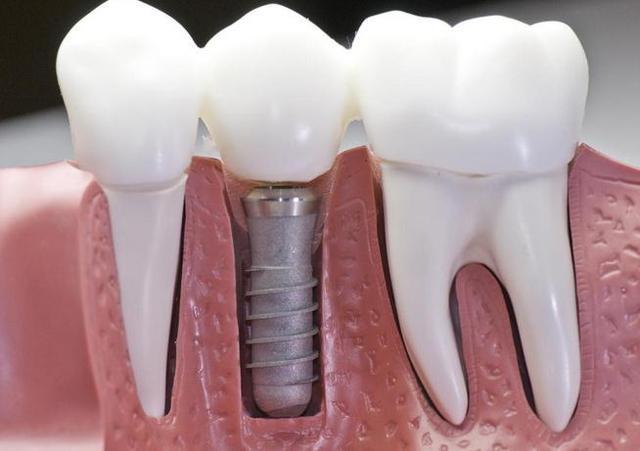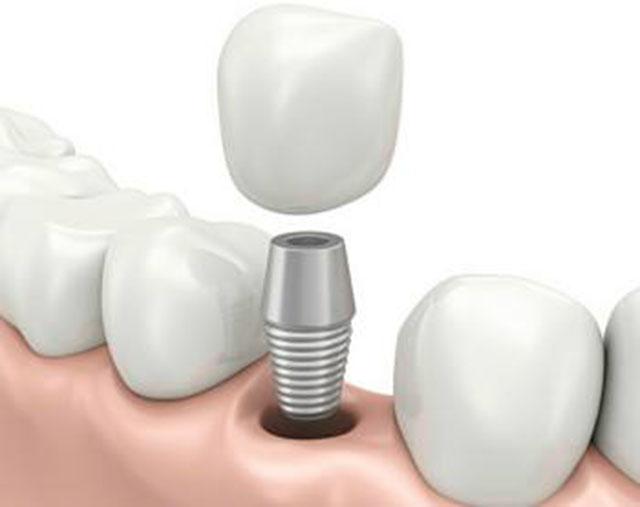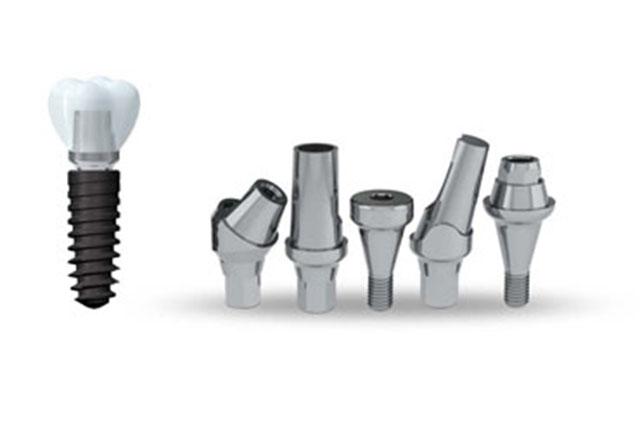Close contact with implant teeth

Once the youth, has gradually away from us, appearance, physiology, physical aspects will be more and more great changes after the age of 40, at the end of this youth, oral and dental problems become the key.
If you lose a big front tooth, the mouth will appear old and unnatural, affecting both beauty and air leakage; if you lose your molars, your masticatory function will deteriorate, which in turn will affect your appetite and gastrointestinal health. How to deal with these annoying oral "troubles"? Dentists say that with the increasing maturity of the "implant" technology, patients no longer have to worry about missing teeth.

Once the youth, has gradually away from us, appearance, physiology, physical aspects will be more and more great changes after the age of 40, at the end of this youth, oral and dental problems become the key.
If you lose a big front tooth, the mouth will appear old and unnatural, affecting both beauty and air leakage; if you lose your molars, your masticatory function will deteriorate, which in turn will affect your appetite and gastrointestinal health. How to deal with these annoying oral "troubles"? Dentists say that with the increasing maturity of the "implant" technology, patients no longer have to worry about missing teeth.
Advantages of dental implants:
1. Comfortable and beautiful
Implant teeth do not need to be retained with the help of bases and clasps and other structures, the appearance and function are completely the same as real teeth, successful implants have no sense of foreign bodies in the mouth, which is conducive to maintaining oral hygiene, comfort and beauty, and make you forget the existence of dentures. Of course, the maintenance of implant teeth should be cherished like real teeth in order to prolong the life of implants as much as possible.
2. A wider range of indications
With the continuous development of dental implant technology, the indications of dental implants have been broadened, and almost any missing tooth can be implanted and repaired. Because the implant is an independent implant and does not need to be attached to the base or clasp of the adjacent tooth, even if the alveolar bone is insufficient, it can be solved by bone grafting, even if the whole mouth is toothless. Patients with complete tooth loss can still get the opportunity of fixed denture restoration through artificial root implantation.
3. Protect the neighboring teeth
Implant teeth implant artificial roots in the alveolar bone of missing teeth, and porcelain crowns are installed on artificial roots, which have their own independent root retention and do not need to be attached to adjacent teeth, which does not do any harm to healthy adjacent teeth. it can also prevent the displacement or loosening of the adjacent teeth due to the absence of teeth.

4. Firm and reliable
Like real teeth, implants include roots and crowns. The implants (that is, artificial roots) are made of pure titanium with good biocompatibility, and are connected to the alveolar bone through bone bonding. They are very strong and can be rooted in the patient's mouth like real teeth, so they are firmly rooted.
5. Protect alveolar bone
Dental implants play a good role in protecting the whole alveolar bone. Human teeth are like big trees, which can flourish only when they are deeply rooted. After tooth loss, alveolar bone is like soil erosion, alveolar bone will appear varying degrees of uselessness, atrophy and absorption. The artificial root of the implant is deeply implanted in the alveolar bone, so it can effectively prevent alveolar bone atrophy and alveolar bone resorption.
6. Principle science
Natural teeth transfer the masticatory pressure in the mouth to the alveolar bone through the root of the tooth, while implants transfer the masticatory pressure to the alveolar bone through the artificial root (implant). The biomechanical principle is the same, so it can bear strong force. the masticatory efficiency is much higher than that of traditional dentures.

In addition to dental implants, the well-known methods of missing teeth are removable denture and fixed bridge restoration, but these two methods are difficult to achieve the feeling of natural teeth, only implant teeth are closer to natural teeth.
One of the greatest functions of teeth is to chew and grind food, so tooth bite force is very important. According to statistics, removable dentures can only restore 3040% of the bite force of natural teeth, and fixed bridges can only restore 60% of the bite force of natural teeth. On the other hand, the dental implant can fully achieve the bite force of natural teeth. Of course, pay attention to bite force at the same time, give customers a beautiful dental restoration, so that customers are satisfied in function and appearance, is also the prospect of implant restoration in the future.
- Prev

Planting method of Catharanthus roseus in pot
Catharanthus roseus is also known as five-petal plum, is a very special flower, it can self-secrete a substance to prevent pests, so basically the whole growth period Catharanthus roseus.
- Next

Planting techniques of Houttuynia cordata Thunb
Farmers grow Houttuynia cordata Thunb, also known as Houttuynia cordata root, dog heart grass, etc., because the roots, stems, leaves have the smell of fish, so the name Houttuynia cordata Thunb. Houttuynia cordata is a perennial perennial root grass.
Related
- Fuxing push coffee new agricultural production and marketing class: lack of small-scale processing plants
- Jujube rice field leisure farm deep ploughing Yilan for five years to create a space for organic food and play
- Nongyu Farm-A trial of organic papaya for brave women with advanced technology
- Four points for attention in the prevention and control of diseases and insect pests of edible fungi
- How to add nutrient solution to Edible Fungi
- Is there any good way to control edible fungus mites?
- Open Inoculation Technology of Edible Fungi
- Is there any clever way to use fertilizer for edible fungus in winter?
- What agents are used to kill the pathogens of edible fungi in the mushroom shed?
- Rapid drying of Edible Fungi

